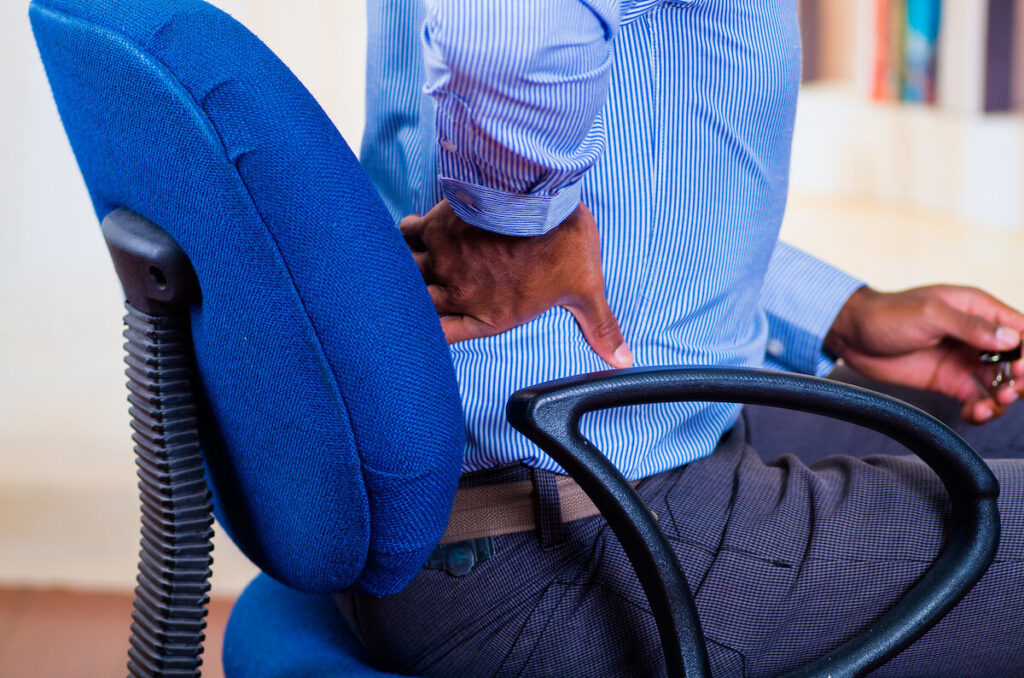Can a Back Injury Cause Sciatica? Your Guide to Back Pain Relief

Think about the most common medical problems facing Americans. You may think about cancer or heart disease, and you should. But 70% of Americans experience low back pain at some point in their lives.
Most people experience pain after a back injury. The pain usually goes away as soon as the injury heals. Yet it can linger, resulting in a debilitating condition called sciatica.
What is sciatica, and why do back injuries cause it? How can you determine if you have sciatica due to a back injury? How can you treat your injury and your sciatica?
Read this quick guide for the answer to these questions.
The Causes of Sciatica
Your sciatic nerve runs from your spinal cord down each leg. It carries signals from your brain and spine into your legs, allowing you to control and feel pain.
Sciatica occurs when the sciatic nerve becomes irritated. A person may experience pain, numbness, and weakness in their back and legs.
Several injuries can irritate or damage the sciatic nerve. If your vertebrae or spinal bones slip, your nerve may get pulled or pinched.
Breaking a bone or tearing muscles can injure your nerves. Nerve injuries most commonly occur after major acts of trauma like a car crash or a fall down a flight of stairs.
However, there are other causes of sciatica. You can experience sciatica if you develop a bone spur on or near your spine. Tumors can press against your spine, causing a nerve pinch.
There are also risk factors associated with the condition. Older people and people with obesity are at higher risk of experiencing sciatica. Intense labor, like lifting heavy objects, can place strain on the back, increasing the chance of nerve pain.
Diagnosing Sciatica After a Back Injury
If you experience sciatica after a back injury, your injury is the most likely cause of your sciatica. But you should not assume the two are connected because you may misdiagnose another condition as being sciatica. Spend some time evaluating your symptoms.
Sciatica presents pain in the lower back and legs. If you have pain in your hip, you may have piriformis syndrome or another problem with your hip, not your sciatic nerve.
Sciatica can cause other symptoms, like incontinence. But incontinence can be a sign of cauda equina syndrome, which affects the nerve roots on the end of the spine. You should get help from a back doctor in NY if you have a problem with incontinence.
If you believe you have sciatica or if you have significant back pain, go to your doctor. Your doctor may run imaging tests on your spine to see if you have spinal cord damage or a bone spur. Once you’ve eliminated other potential problems, you can pursue sciatica relief.
Back Pain and Sciatica Relief
In order to get full back pain relief, you need to treat your back injury and your sciatica simultaneously. You should take several steps to get comprehensive treatment and eliminate your pain.
Exercise
You can perform many stretches to reduce your sciatic pain. Try to perform a few stretches every morning to build your muscles and improve your flexibility.
To start a side-lying hip stretch, lie on the floor on your right side. You should slide your top leg toward your chest before placing your knee on the ground. Hold the pose, then straighten your leg and repeat the gestures several times over.
If you find moving your leg difficult, you can try a buttocks pinch. Place a pillow under your abdomen and lie flat on the floor. Squeeze your buttocks together, hold for a few seconds, and then relax and repeat the process again.
You should try to get a little cardio so you restore blood flow to your back. Go for a walk or a light jog, but don’t overexert yourself. You should return home once you feel tired.
Medications
You don’t have to take powerful medication for sciatica. An over-the-counter pill like aspirin or ibuprofen can reduce your pain and inflammation.
If over-the-counter medications don’t work, you can receive a muscle relaxant. Tizanidine can reduce muscle spasms after a spinal cord injury like a broken vertebra.
You should not take any medicine without your doctor’s approval. Even aspirin has side effects, including ulcers and intestinal bleeding. Take small doses of drugs with water and monitor your body for any effects.
Back Surgery
Not all people who experience a back injury or sciatica need back surgery. But if your pain becomes severe or if you have a major injury, consider surgery.
A microdiscectomy involves removing part of a spinal disc that is pressing on the sciatic nerve. A surgeon will cut an incision in your back and remove the part of the disk pressing against the nerve. This will not affect your spinal cord or impair your mobility.
The Connections Between Back Injuries and Sciatica
If your sciatic nerve becomes damaged, you may develop sciatica. A back injury after a car accident or fall can damage your nerves. Yet you should remember other causes of sciatica, including old age. Talk to your doctor to narrow the causes of your pain.
You don’t have to go far to get back pain relief. New York City Spine serves NYC and NJ residents. Contact us today.
